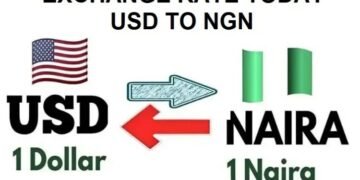Access Bank, Others Send Messages to Customers Over CBN New Update.
In response to the Central Bank of Nigeria’s (CBN) decision to increase the Monetary Policy Rate (MPR), Nigerian banks have raised their interest rates on savings accounts. The MPR is the benchmark interest rate that the CBN sets for lending to banks, and it directly affects the cost of borrowing for businesses and individuals in the country.
Access Bank, one of Nigeria’s leading financial institutions, announced in an email to customers that it would increase the interest rate on all savings accounts to 5.40% per annum, effective immediately. Zenith Bank, FCMB, First Bank, and Fidelity Bank also announced new interest rates on savings accounts in response to the CBN’s decision to raise the MPR.
The CBN’s decision to increase the MPR to 18% during its last meeting was intended to combat inflation and improve the standard of living in the country. However, the quarterly hikes in interest rates can have negative effects on purchasing power, the standard of living, and the prices of consumer goods. When interest rates are high, it can discourage borrowing and encourage people to save more, which can lead to a decrease in demand for goods and services.
Additionally, commercial banks use the MPR as a benchmark for their lending rates, so higher interest rates can increase borrowing costs and make it more difficult for businesses and individuals to access credit. This can have negative effects on economic growth and development in the country.
Following the recent interest rate hike to 15.5%, the CBN issued a directive for banks to pay 4.65% interest on savings accounts to mop up excess liquidity in the system. This directive was issued in response to the increased interest rates on savings deposits, which could lead to excess liquidity in the system and have negative effects on the economy.
In conclusion, the decision by Nigerian banks to raise their interest rates on savings accounts in response to the CBN’s decision to increase the MPR reflects the impact that monetary policy decisions can have on the economy. While higher interest rates can help to combat inflation, they can also have negative effects on economic growth and development. It will be important for policymakers to carefully consider the trade-offs involved in setting interest rates and to work to mitigate the negative effects on individuals and businesses in the country.

















